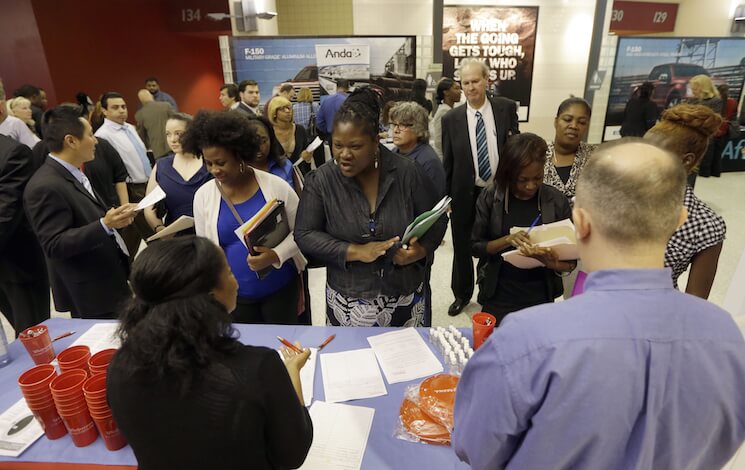Giving credit to the unemployed

Losing your job sucks. Outside of the psychological strain and the absence of something to do during the day, you’ve lost what is presumably your primary source of income. And somehow you have to make up the difference between your now-zero income and the cost of paying your bills and buying everyday necessities. Often, the response to such a problem is private credit, through increased credit card use or taking out a loan against the value of your house.
Credit can help an unemployed worker ride out their lack of a job until they find a new one. But what if the worker had access to more credit? How would that affect their job hunt?
The effect of extending credit to unemployed workers is at the heart of a paper by economists Kyle Herkenhoff of the University of Minnesota, Gordon Phillips of the University of Southern California, and Ethan Cohen-Cole of Econ One Research. The three economists look at how increasing an unemployed worker’s credit limits affects both the duration of their job search and their earnings after they find a job. Essentially, they’re trying to figure out how increasing the amount of money an unemployed worker can borrow changes how quickly they’ll find a job and what kind of job they’ll take.
First, a few details on the data the economists are using. They are focusing on the effect of increasing credit limits on the job hunts of unemployed workers who have mortgages. They do this because their empirical technique relies on regional variation in housing price growth and the workers’ ability to borrow against a home as the way of teasing out the independent effect of more credit (instead of measuring the effect of other factors like changes in labor demand that are correlated with credit and job search). Furthermore, they also look only at workers who lost their job due to a layoff. So this limits the applicability of the findings to all unemployed workers just a bit.
The economists find that increasing an unemployed worker’s credit limit extends the amount of time that the worker searches for a job, but it also increases the worker’s income at the next job they have. Specifically, a credit limit increase equal to 10 percent of the worker’s previous earnings extends the worker’s job hunt by about two to seven days on average, and increases the worker’s earnings at their new job by 0.5 percent to 1.5 percent compared to their previous job.
Simply put, access to more credit lets workers take more time to look for a job and then find a seemingly better match. That’s certainly good news for unemployed workers who can get access to more credit—but that’s not always feasible. There’s good evidence that during the Great Recession, increasing credit flowed mostly to borrowers who already had good credit. So a laid-off worker with a low credit score likely won’t be as able to use credit to take more time to find a better job as a laid-off worker with higher credit. And the specific mechanism that Herkenhoff, Phillips, and Cohen-Cole look at is dependent upon the worker owning a home in the first place.
But credit isn’t the only mechanism that can help workers take more time to find a job. There’s also the unemployment insurance system. And the three economists argue that the effects of increasing the level of unemployment benefits are very similar to those from extended credit: a longer but better job search. The key difference, however, is that the effects of unemployment insurance are much stronger—between two and four times as strong, according to their read of the literature. So while private credit can be very helpful in helping an unemployed worker search for a job, public benefits appear to help quite a bit more.

